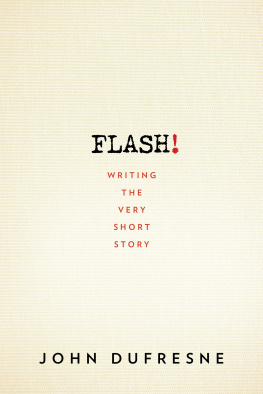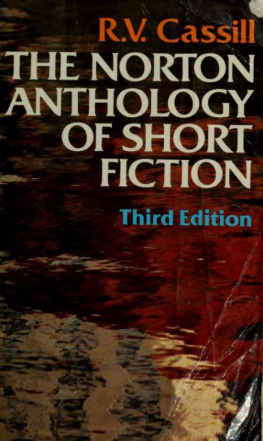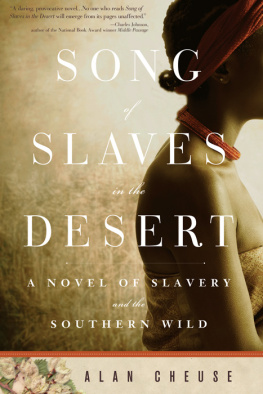Robert Shapard - Sudden Fiction International: 60 Short Stories
Here you can read online Robert Shapard - Sudden Fiction International: 60 Short Stories full text of the book (entire story) in english for free. Download pdf and epub, get meaning, cover and reviews about this ebook. year: 1989, publisher: W. W. Norton & Company, genre: Art. Description of the work, (preface) as well as reviews are available. Best literature library LitArk.com created for fans of good reading and offers a wide selection of genres:
Romance novel
Science fiction
Adventure
Detective
Science
History
Home and family
Prose
Art
Politics
Computer
Non-fiction
Religion
Business
Children
Humor
Choose a favorite category and find really read worthwhile books. Enjoy immersion in the world of imagination, feel the emotions of the characters or learn something new for yourself, make an fascinating discovery.
- Book:Sudden Fiction International: 60 Short Stories
- Author:
- Publisher:W. W. Norton & Company
- Genre:
- Year:1989
- Rating:5 / 5
- Favourites:Add to favourites
- Your mark:
- 100
- 1
- 2
- 3
- 4
- 5
Sudden Fiction International: 60 Short Stories: summary, description and annotation
We offer to read an annotation, description, summary or preface (depends on what the author of the book "Sudden Fiction International: 60 Short Stories" wrote himself). If you haven't found the necessary information about the book — write in the comments, we will try to find it.
Sudden Fiction International: 60 Short Stories — read online for free the complete book (whole text) full work
Below is the text of the book, divided by pages. System saving the place of the last page read, allows you to conveniently read the book "Sudden Fiction International: 60 Short Stories" online for free, without having to search again every time where you left off. Put a bookmark, and you can go to the page where you finished reading at any time.
Font size:
Interval:
Bookmark:
The Grasshopper and the Bell Cricket
Walking along the tile-roofed wall of the university, I turned aside and approached the upper school. Behind the white board fence of the school playground, from a dusky clump of bushes under the black cherry trees, an insects voice could be heard. Walking more slowly and listening to that voice, and furthermore reluctant to part with it, I turned right so as not to leave the playground behind. When I turned to the left, the fence gave way to an embankment planted with orange trees. At the corner, I exclaimed with surprise. My eyes gleaming at what they saw up ahead, I hurried forward with short steps.
At the base of the embankment was a bobbing cluster of beautiful varicolored lanterns, such as one might see at a festival in a remote country village. Without going any farther, I knew that it was a group of children on an insect chase among the bushes of the embankment. There were about twenty lanterns. Not only were there crimson, pink, indigo, green, purple, and yellow lanterns, but one lantern glowed with five colors at once. There were even some little red store-bought lanterns. But most of the lanterns were beautiful square ones which the children
had made themselves with love and care. The bobbing lanterns, the coming together of children on this lonely slopesurely it was a scene from a fairy tale?
One of the neighborhood children had heard an insect sing on this slope one night. Buying a red lantern, he had come back the next night to find the insect. The night after that, there was another child. This new child could not buy a lantern. Cutting out the back and front of a small carton and papering it, he placed a candle on the bottom and fastened a string to the top. The number of children grew to five, and then to seven. They learned how to color the paper that they stretched over the windows of the cutout cartons, and to draw pictures on it. Then these wise child-artists, cutting out round, three-cornered, and lozenge leaf shapes in the cartons, coloring each little window a different color, with circles and diamonds, red and green, made a single and whole decorative pattern. The child with the red lantern discarded it as a tasteless object that could be bought at a store. The child who had made his own lantern threw it away because the design was too simple. The pattern of light that one had had in hand the night before was unsatisfying the morning after. E&ch day, with cardboard, paper, brush, scissors, penknife, and glue, the children made new lanterns out of their hearts and minds. Look at my lantern! Be the most unusually beautiful! And each night, they had gone out on their insect hunts. These were the twenty children and their beautiful lanterns that I now saw before me.
Wide-eyed, I loitered near them. Not only did the square lanterns have old-fashioned patterns and flower shapes, but the names of the children who had made them were cut out in squared letters of the syllabary. Different from the painted-over red lanterns, others (made of thick cutout cardboard) had their designs drawn onto the paper windows, so that the candles light seemed to emanate from the form and color of the design itself.
The lanterns brought out the shadows of the bushes like dark light. The children crouched eagerly on the slope wherever they heard an insects voice.
Does anyone want a grasshopper? A boy, who had been peering into a bush about thirty feet away from the other children, suddenly straightened up and shouted.
Yes! Give it to me! Six or seven children came running up. Crowding behind the boy who had found the grasshopper, they peered into the bush. Brushing away their outstretched hands and spreading out his arms, the boy stood as if guarding the bush where the insect was. Waving the lantern in his right hand, he called again to the other children.
Does anyone want a grasshopper? A grasshopper!
I do! I do! Four or five more children came running up. It seemed you could not catch a more precious insect than a grasshopper. The boy called out a third time.
Doesnt anyone want a grasshopper?
Two or three more children came over.
Yes. I want it.
It was a girl, who just now had come up behind the boy whod discovered the insect. Lightly turning his body, the boy gracefully bent forward. Shifting the lantern to his left hand, he reached his right hand into the bush.
Its a grasshopper.
Yes. Id like to have it.
The boy quickly stood up. As if to say Here! he thrust out his fist that held the insect at the girl. She, slipping her left wrist under the string of her lantern, enclosed the boys fist with both hands. The boy quietly opened his fist. The insect was transferred to between the girls thumb and index finger.
Oh! Its not a grasshopper. Its a bell cricket. The girls eyes shone as she looked at the small brown insect.
Its a bell cricket! Its a bell cricket! The children echoed in an envious chorus.
Its a bell cricket. Its a bell cricket.
Glancing with her bright intelligent eyes at the boy who had given her the cricket, the girl opened the little insect cage hanging at her side and released the cricket in it.
Its a bell cricket.
Oh, its a bell cricket, the boy whod captured it muttered. Holding up the insect cage close to his eyes, he looked inside it. By the light of his beautiful many-colored lantern, also held up at eye level, he glanced at the girls face.
Oh, I thought. I felt slightly jealous of the boy, and sheepish. How silly of me not to have understood his actions until now! Then I caught my breath in surprise. Look! It was something on the girls breast which neither the boy who had given her the cricket, nor she who had accepted it, nor the children who were looking at them noticed.
In the faint greenish light that fell on the girls breast, wasnt the name Fujio clearly discernible? The boys lantern, which he held up alongside the girls insect cage, inscribed his name, cut out in the green papered aperture, onto her white cotton kimono. The girls lantern, which dangled loosely from her wrist, did not project its pattern so clearly, but still one could make out, in a trembling patch of red on the boys waist, the name Kiyoko. This chance interplay of red and greenif it was chance or playneither Fujio nor Kiyoko knew about.
Even if they remembered forever that Fujio had given her the cricket and that Kiyoko had accepted it, not even in dreams would Fujio ever know that his name had been written in green on Kiyokos breast or that Kiyokos name had been inscribed in red on his waist, nor would Kiyoko ever know that Fujios name had been inscribed in green on her breast or that her own name had been written in red on Fujios waist.
Fujio! Even when you have become a young man, laugh with pleasure at a girls delight when, told that its a grasshopper, she is given a bell cricket; laugh with affection at a girls chagrin
when, told that its a bell cricket, she is given a grasshopper.
Even if you have the wit to look by yourself in a bush away from the other children, there are not many bell crickets in the world. Probably you will find a girl like a grasshopper whom you think is a bell cricket.
And finally, to your clouded, wounded heart, even a true bell cricket will seem like a grasshopper. Should that day come, when it seems to you that the world is only full of grasshoppers, I will think it a pity that you have no way to remember tonights play of light, when your name was written in green by your beautiful lantern on a girls breast.
Translated by Lane Dunlop
Antigua
JAMAICA KINCAID
Girl
Wash the white clothes on Monday and put them on the
stone heap; wash the color clothes on Tuesday and put them on the clothesline to dry; dont walk barehead in the hot sun; cook pumpkin fritters in very hot sweet oil; soak your little cloths right after you take them off; when buying cotton to make yourself a nice blouse, be sure that it doesnt have gum on it, because-that way it wont hold up well after a wash; soak salt fish overnight before you cook it; is it true that you sing benna in Sunday school?; always eat your food in such a way that it wont turn someone elses stomach; on Sundays try to walk like a lady and not like the slut you are so bent on becoming; dont sing benna in Sunday school; you mustnt speak to wharf-rat boys, not even to give directions; dont eat fruits on the street flies will follow you; but I don't sing benna on Sundays at all and never in Sunday school; this is how to sew on a button; this is how to make a buttonhole for the button you have just sewed on; this is how to hem a dress when you see the hem coming down and so to prevent yourself from looking like the slut I know you are so bent on becoming; this is how you iron your fathers
Next pageFont size:
Interval:
Bookmark:
Similar books «Sudden Fiction International: 60 Short Stories»
Look at similar books to Sudden Fiction International: 60 Short Stories. We have selected literature similar in name and meaning in the hope of providing readers with more options to find new, interesting, not yet read works.
Discussion, reviews of the book Sudden Fiction International: 60 Short Stories and just readers' own opinions. Leave your comments, write what you think about the work, its meaning or the main characters. Specify what exactly you liked and what you didn't like, and why you think so.













